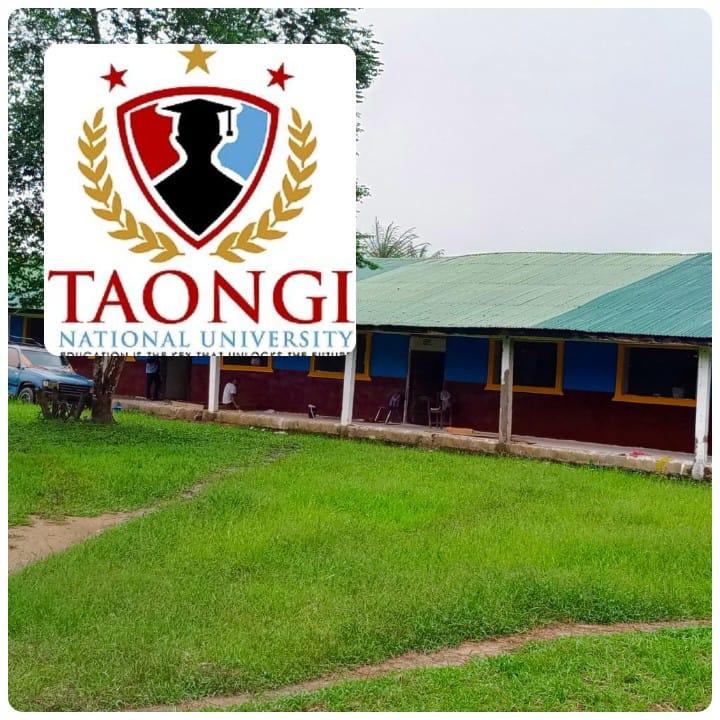Written by TNU Administration
TNU is an emerging world-class university with emphasis on research, creativity and innovation. TNU emphasizes academic excellence and has a deep quest to promote quality higher education in Liberia, Africa and the world at large TNU is very cognizant of the fact that access to quality higher education enables the citizens and inhabitants of any country to develop, flourish, and have more confidence in themselves and their abilities. TNU also understands that by educating the citizens and inhabitants of any country, they acquire the keys to solving everyday problems and preparing for their future. Moreover, quality higher education enables upward socioeconomic mobility and is a key to escaping poverty. Quality higher education helps reduce inequalities and reach gender equality and is crucial to fostering tolerance and more peaceful societies. Quality higher education is a powerful weapon for changing lives and shaping the future. It has been proven that quality higher education is an essential tool for gaining the best knowledge and developing modernization in society.
In view of this, TNU focuses on working very hard to meet and exceed global academic standards. In order to achieve this goal, TNU ensures that all faculty members, office staffers and students understand and become very cognizant of the facts and realities of TNU’s academic philosophy or education approach, academic writing style, and the full implementation of the primary objectives of the University System.
- Academic Philosophy and Education Approach:
It is time for faculties, staff, and students to understand and practice our academic philosophy and education approach, and that is, “Philosophical higher criticism with emphasis on the critical literary forms”.
- Philosophical-Critical writing.
When critical writing takes a philosophical trend, it entails being constructive and critical. It outlines the system of knowledge, points out faults, and judges the merits of issues or things. In other words, it focuses on the critical examination of the meaning truth, and grounds of ideas, and of the methods by which ideas are arrived at. Thus, philosophical critical writing appears to be the highest form of academic writing, it engages an individual to display his or her intellectual prowess at the highest maxims of reason by seeking to determine the source, the extent, the validity of human knowledge and the ultimate limits of reason.
- The Primary Objectives of the University System is to Produce Learners who:
- Knows the major theories and principles of the discipline
- Can apply principal methods of inquiry in the discipline
- Understands the history and philosophy of the field
- Knows the major problems and strengths of the field
- Appreciates the relationship between society and the field
- Demonstrates skills in topical analysis and critical evaluation and comparison, along with individual synthesis
- Professional communication appropriate to the degree level.
As we have seen, TNU is an emerging world-class university with emphasis on research, creativity and innovation. Accordingly, to achieve the above measures put in place, TNU ensures that all students attend classes regularly and must make a pass in all assignments, quizzes, tests and exams and also TNU enforces practicum principles on all courses taught at Taongi National University. In other words, the institution ensures that all students are capable of demonstrating the practical application of each course at the end of each semester.
Therefore, besides attending classes regularly, doing and making a pass in all assignments, quizzes, tests, mid-term and final exams in each course, the institution ensures that the practicum aspects of each course must be a well research paper of 20 pages minimum, and 30 pages maximum, written in the context of its academic philosophy or education approach, displaying the content of its writing style, and outlining the elements of the primary objectives of the university system.
This means in other words, in each practicum research paper for each course, the instructors must ensure that each student must:
- Be constructive and critical or outline the system of knowledge, in a step by step manner, point out faults, and judge the merits of issues or things
- Critically examine the meaning truth, and grounds of ideas, and of the methods by which ideas are arrived at.
- Seek to determine the source, the extent, the validity of human knowledge and the ultimate limits of reason, and that is, the major theories and principles of the course or discipline.
- Explain how to apply or use the principal methods of inquiry in the course or discipline
- Understands and explain the history and philosophy of the field or course.
- Know, understand and explain the major problems and strengths of the field or course.
- Know, understand and explain how to appreciate the relationship between societies and the field or course.
- Know, understand and explain how to demonstrate skills in topical analysis and critical evaluation and comparison, along with individual synthesis.
- Know understand and explain how to professionally communicate appropriate to the degree level.
And again, the institution ensures that all students:
- Present each course practicum research paper extemporaneously.
- Next, the institution ensures that all students take a comprehensive exam or general exam that covers all topics during the semester, and must reflect the elements of the primary objectives of the university system in each course, to display and prove that the student knows and understands the course very well.
In sum, Taongi National University is an emerging world-class university working very hard to meet and exceed global academic standards.
